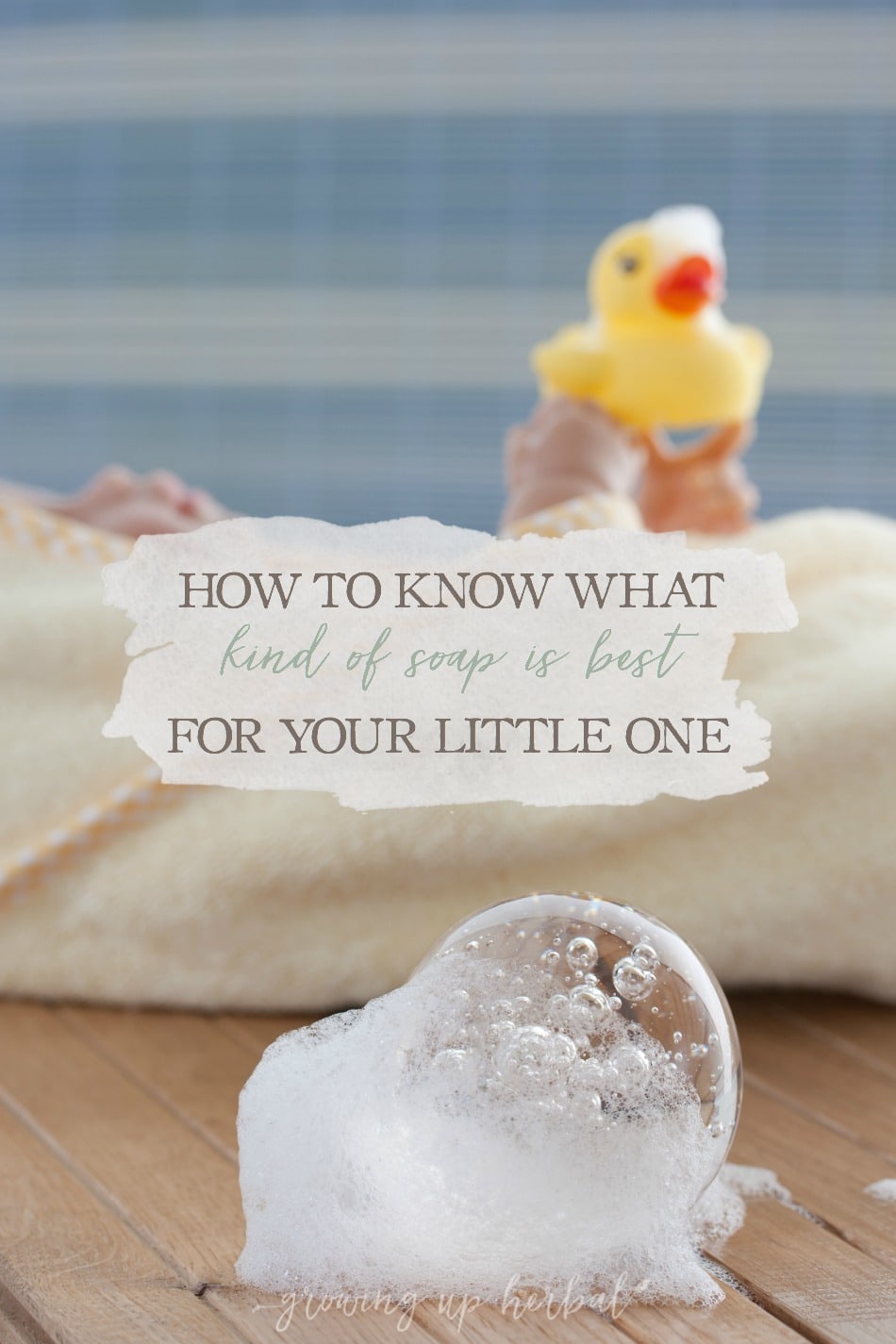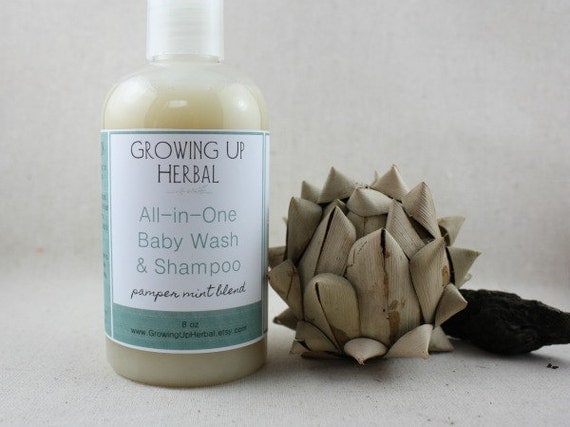
I sometimes get asked by potential customers if my soap is good for kids with dry skin, and my response is, “Yes! Of course it is!”
Well today, I want to explain further.
First I want to help you understand your child’s skin – why it’s important to use gentle, natural skincare products on them, and then I’ll talk briefly about my soap and why it’s great for little ones.
Understanding Babies Skin
- Babies ratio of skin surface area to body volume insignificantly larger than in adults… which means… they have more skin to absorb things through
- The dermis is thinner than in adults
- The water content of the out-most layer of skin is higher, and its structure is looser.
- The skin hardly produces any sebum before puberty.
- Sweat is not able to regulate a baby’s body temperature as effectively as it does in adults.
- The acid mantle only begins to develop after a baby has been born and is liable to break down during childhood.
All of the above things [1] go to show that it’s important to be careful with your child’s skin. It’s not just like adult skin, and that means you shouldn’t treat it like adult skin.
Let’s look at each of the following areas.
Absorbency
Since small children have more skin surface area (based on their body volume) than adults, that means they can absorb more than you or I can.
So let’s just say I go out and buy a generic sunscreen for myself and my child, and I slather it on the both of us while we’re at the beach.
Who’s going to absorb more of the chemicals?
My child will.
Who’s going to receive the greater effect of the toxins in the sunscreen?
My child will because he has a smaller body, and he absorbed more.
Your child absorbs more than you do. Simply put. Don’t take this on my account only. Google it. You’ll find major skincare companies, as well as expert children’s dermatologists, talking about this. Be careful what you put on your kid’s skin.
Delicate
A child’s skin is thinner and the structure isn’t as tight as ours is.
Look at this graphic from Eucerin [2].
What they want you to do is to pretend that your skin cells are bricks shown as the number 1, and the number 2 area is the epidermal lipids that act as mortar for the cells. These lipids not only give cells stability, but they play a huge roll in allowing things in and out of the skin… like moisture and sweat.
In a small child, this structure isn’t packed as tightly as it is in an adult, and this means that the skin is more delicate and sensitive to external factors.
Sensitive
Because a child’s skin absorbs more and is more delicate, this means it’s more sensitive than an adults skin would be. They burn easier than most adults in the sun, toxins affect their skin faster, soaps and skincare products can be more irritating to them… this includes detergents and perfumes, and they can get skin infections easier.
Much of this is due to the fact that their epithelial (top skin layer) structure is looser than that of an adult, but it’s also in part to the fact that they don’t have the protective “acid mantle” that adults have.
The acid mantle is like a coating on the skin’s surface that’s a mixture of sebum (skin oils) and sweat. It provides a barrier to the cells against exposure to bacteria… something we come into contact with constantly. This acid mantle has an acidic pH, and it helps to kill bacteria before they can enter our body and cause an infection. There are things that can break this acid mantle down like excess scratching, dry skin, harsh soaps, products that are too alkaline, cuts, scrapes, etc. which expose us to these bacteria. Children don’t have this protective layer. It builds up over time… as they age. (Source)
What Does All This Mean In Terms Of Soap And Skincare?
This means that you need to do your best to use gentle, natural skincare products on your child’s skin. Not only will it cut down on the chemicals and toxins they absorb and how their body responds to those sorts of things, but it will also not weaken their already delicate, sensitive skin structure any more than it already is.
Growing Up Herbal Baby Wash & Shampoo
So what about the soap I make… where does it fit into all of this?
Well, when I first learned about making natural skincare, I started with a very basic recipe that I used for my kids only. I didn’t know as much about the skin at that point, and I definitely didn’t know about the difference in adult skin versus children’s skin. My soap worked great. My husband and I even used it for ourselves, bravely testing it by getting it in our eyes to see if it would burn terribly. Thankfully it didn’t, but I’m overly cautious so I don’t claim it to be a tear-free soap.
But then… I started noticing that my oldest, who’s always had dry, bumpy skin, wasn’t really doing any better, and I was having to use my baby oil on him every single night to keep his skin soft. The soap didn’t bother his skin and he didn’t even react to it, but I wanted to make it even better. I mean… it’s not super simple to make liquid soap, and I decided that if I was taking the time to make something healthy for my family, I wanted it to be good.
Gentle & Moisturizing
I looked into things that can be added to the soap making process that helps to make it even gentler and moisturizing for babies. I found glycerin and sulfonated castor oil.
Glycerin functions as a humectant which means it draws moisture from the air and holds it to the skin. The castor oil helps emulsify the soap and also acts to add extra moisture to it. Both of these things make the soap milder for little ones with sensitive skin.
Monitoring pH
Another thing I learned was that I needed to test the pH of my soap, something I had previously not done. There are a lot of different ways to do this. pH measuring devices (paper, meters), the old-fashioned tongue test, and a chemical called phenolphthalein. The goal is to get soap at a neutral pH to maintain the skins proper balance.
Now neutral is considered as showing up as 7 on the pH scale of 1-14. It’s pretty difficult to get soap to that point and keep it all natural, so that’s not happening. For home-made soaps, neutral has a range, and they’re all on the alkaline side so they clean. The actual number depends on what you’re using your soap for. The closer to 7 it is, the milder and more gentle it will be, but the less it cleans.
Since my soap is for babies skin, I shoot for 9. Babies aren’t normally all that dirty. Sure you need to focus on getting their face, hands, hair, and bottoms clean, but that can be done with mild baby soap. If you want hand soap, pH is most likely going to go up to about 10, and I read somewhere that laundry soap is between 12-14 so it really pulls the grease and dirt from clothes.
So how do I test for pH?
I use all three methods because I don’t trust any one of them too much. I think phenolphthalein is the most accurate, but I’m not a chemist. I don’t fully understand it. I test my soap with it, and I always get good results. I do test with a pH meter and the tongue test as well just to make triple sure.
What Kind Of Soap Is Best For Your Little One?
Mild, gentle, hypo-allergenic, moisturizing soap. That’s it.
Next week I’ll be talking about skipping soap altogether and washing with water! Be sure to come back then to find out more about how to care for your baby’s skin naturally.


[…] Best Baby Soap […]
[…] Best soap for baby […]
Do you still make this body wash to sell in your store? I didn’t see it, I only saw some baths with oatmeal. I prefer to avoid oatmeal and prefer a “body wash” to a bar of soap, so this would be really great to have. If you’re not selling it, would you be willing to share how one could make it ourselves? Thanks so much!
I actually do make it, but my husband and I are finishing up our new home and preparing to move so I’m selling out of products in my shop. The plan is to put it on vacation when we move until we get settled, and then I’ll stock the shop back up with everything. Be sure to subscribe to my newsletter to stay up-to-date on shop info!!
Taking care of kid’s skin is the toughest task. Bath soap plays an important role… My daughter was recently diagnosed with eczema and the doctor said we need to change her bath soap along with other things. Thanks for the information .